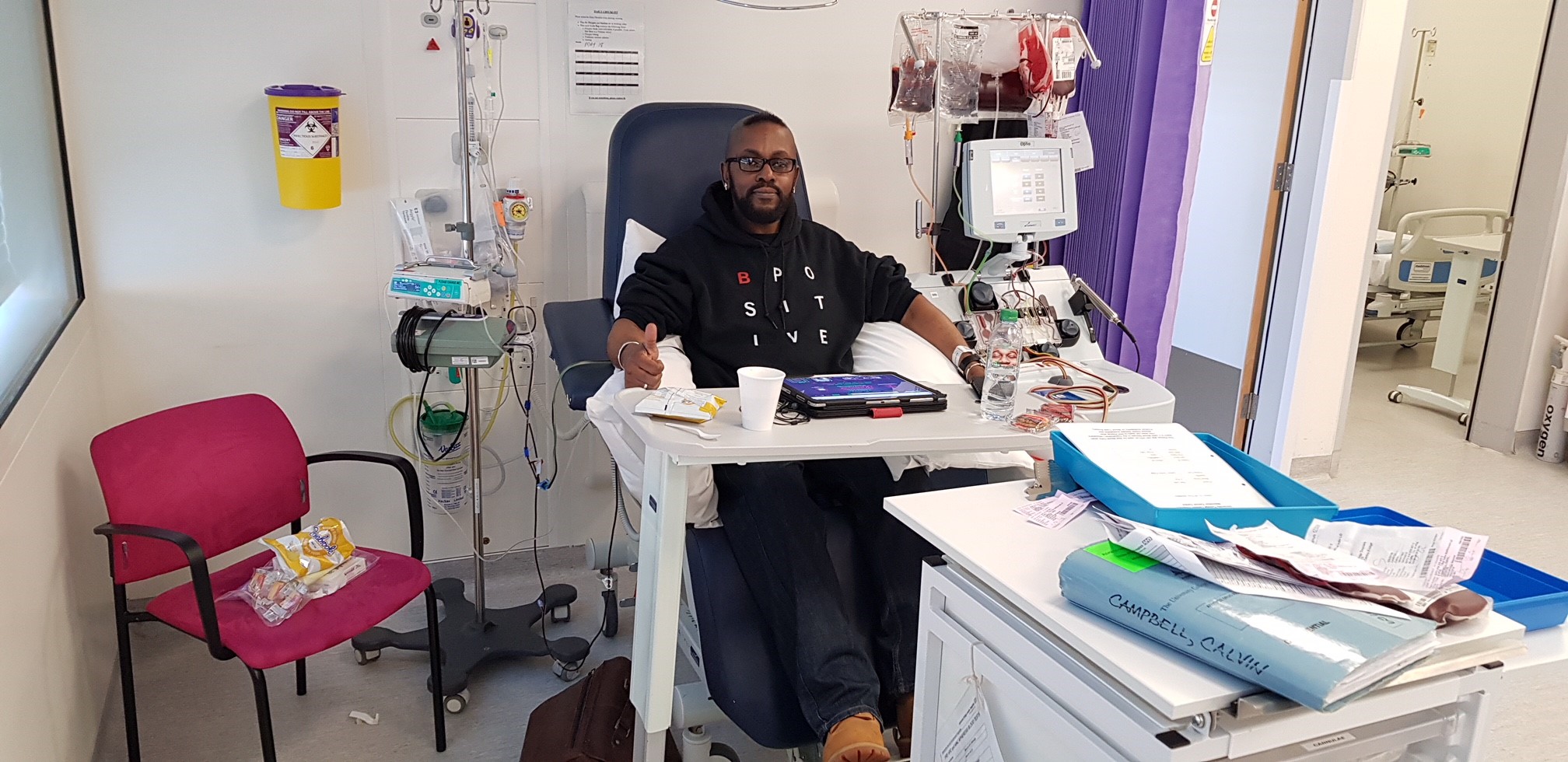B Positive choir videos
View the choir's on playlist on YouTube
Black people in three key areas are being urged to register to give blood after new figures revealed an urgent shortage of black donors.
NHS Blood and Transplant needs 5,290* new black blood donors in London, Birmingham and Manchester to help patients with sickle cell, a condition that mainly affects black people.
People from black African, black Caribbean and mixed heritage backgrounds are more likely to have the rare Ro blood subtype that is vital for sickle cell patients.
Sickle cell is the most common and fastest growing genetic disorder in the UK. Many of the 15,000 people living with the disease rely on frequent blood transfusions to lead normal lives.
Sickle cell can cause extreme pain, life-threatening infections and other complications such as organ failure, stroke or loss of vision. Regular blood transfusions help to prevent or relieve the painful symptoms and complications.

Calvin Campbell, 55, from north London, was diagnosed with sickle cell at just six months old. He receives 10 units of blood every month through an exchange, where his blood is removed and replaced with donated blood.
Calvin has lived with varying degrees of chronic pain all his life and is never pain-free. Before joining the exchange programme, he spent long periods in hospital including a two-year stay for complications which included disabling ulcers to his legs and feet.
The blood exchanges Calvin receives at University College London Hospitals help to prevent or relieve his symptoms and help him to lead a normal life.
Calvin, who sings in the B Positive Choir to promote blood donation, said: “More and more people are living with sickle cell and we depend on blood to give us our lives back. But there is not enough of the right blood to go round.
“I have had transfusions and exchanges postponed because of a lack of well-matched blood, and I have seen the impact on others of receiving blood that isn’t the ideal match.
“I don’t think enough black people understand the need to give blood or realise that people like me depend on donors of the same ethnic background. When people understand, they are willing to give.”
The rise in sickle cell patients combined with the increased use of blood transfusions to treat the disease has seen demand for Ro blood soar by 80 percent over the last three years.
NHS Blood and Transplant urgently needs 40,000 new black donors to meet this demand and help sickle cell patients across England.
To help reach this target, around 4,000 new donors are needed across London’s three donor centres at West End, Tooting and Edgware.
At Birmingham Donor Centre the figure is 670, while 620 new donors are needed across Manchester’s two donor centres at Norfolk House and Plymouth Grove.
Nadine Eaton, Head of Blood Donation Campaigns for NHS Blood and Transplant said: “More and more black people are saving lives by donating blood but there is still a shortage of donors.
“People from similar ethnic backgrounds are more likely to have matching blood but the shortage of black donors means some black people with sickle cell disease don’t always get the best matched blood.
“Black people are ten times more likely than white people to have the vitally important Ro blood subtype, which is key for treating sickle cell disease.
“Sickle cell is a serious genetic disease that affects the red blood cells that carry oxygen around the body. The patient’s blood cells form into a sickle or crescent shape and they get stuck in blood vessels. Some patients experience acute episodes of extreme pain.
“Severe sickle cell disease can cause loss of sight, organ failure and stroke, and the complications can be fatal. Blood donation is quick, easy and safe. You will save lives – and feel proud.”
Story notes
Notes to editors